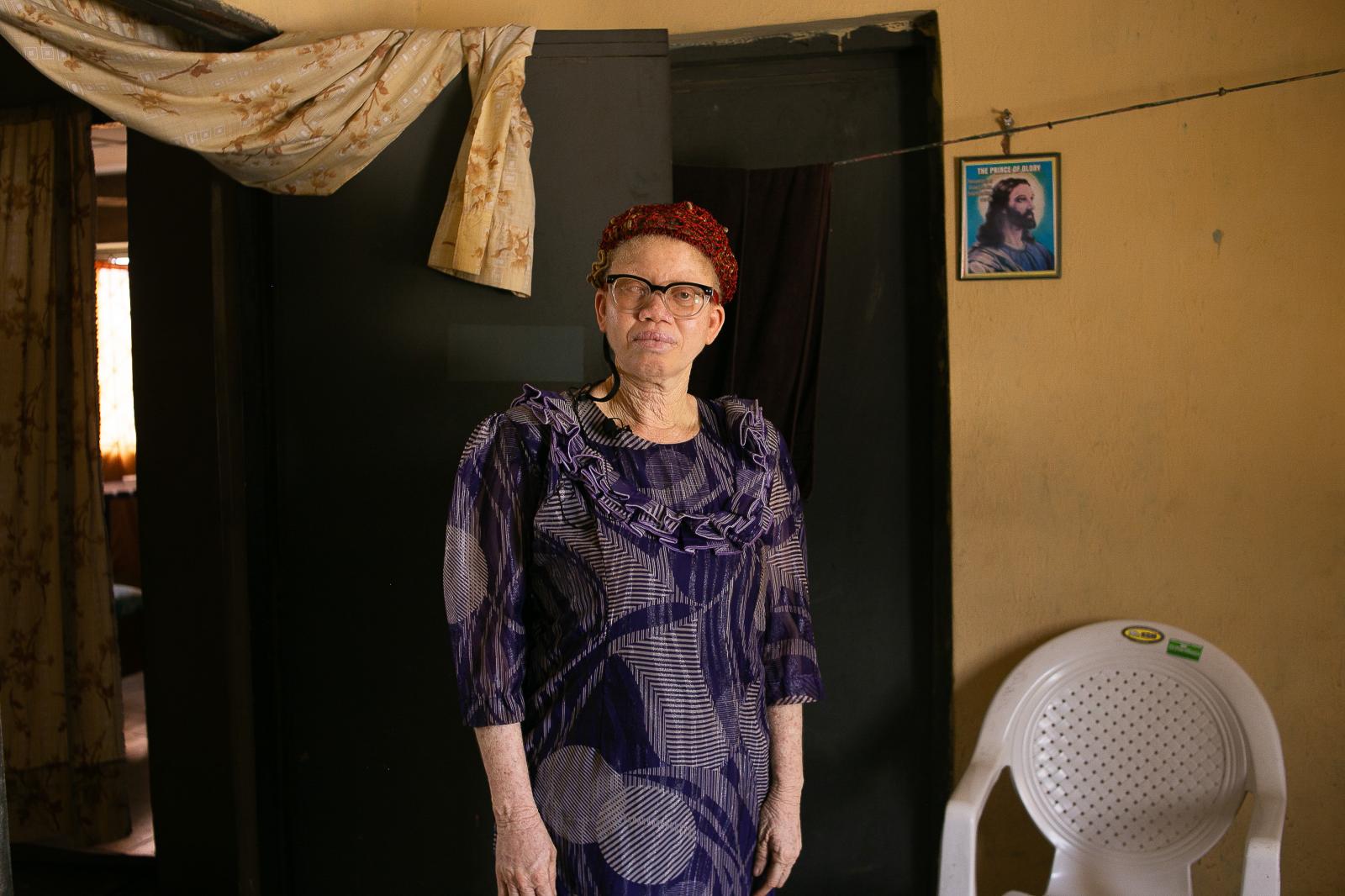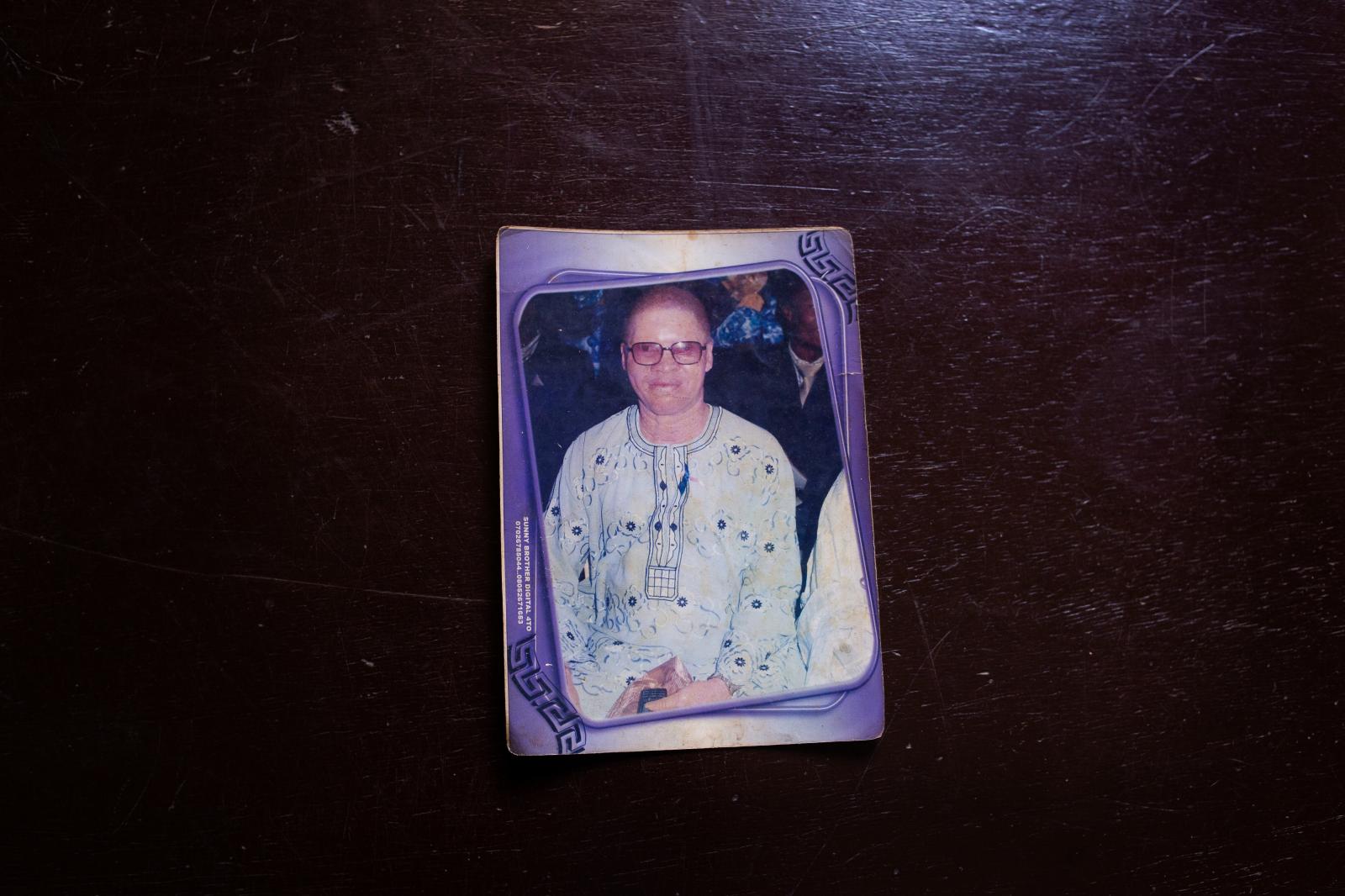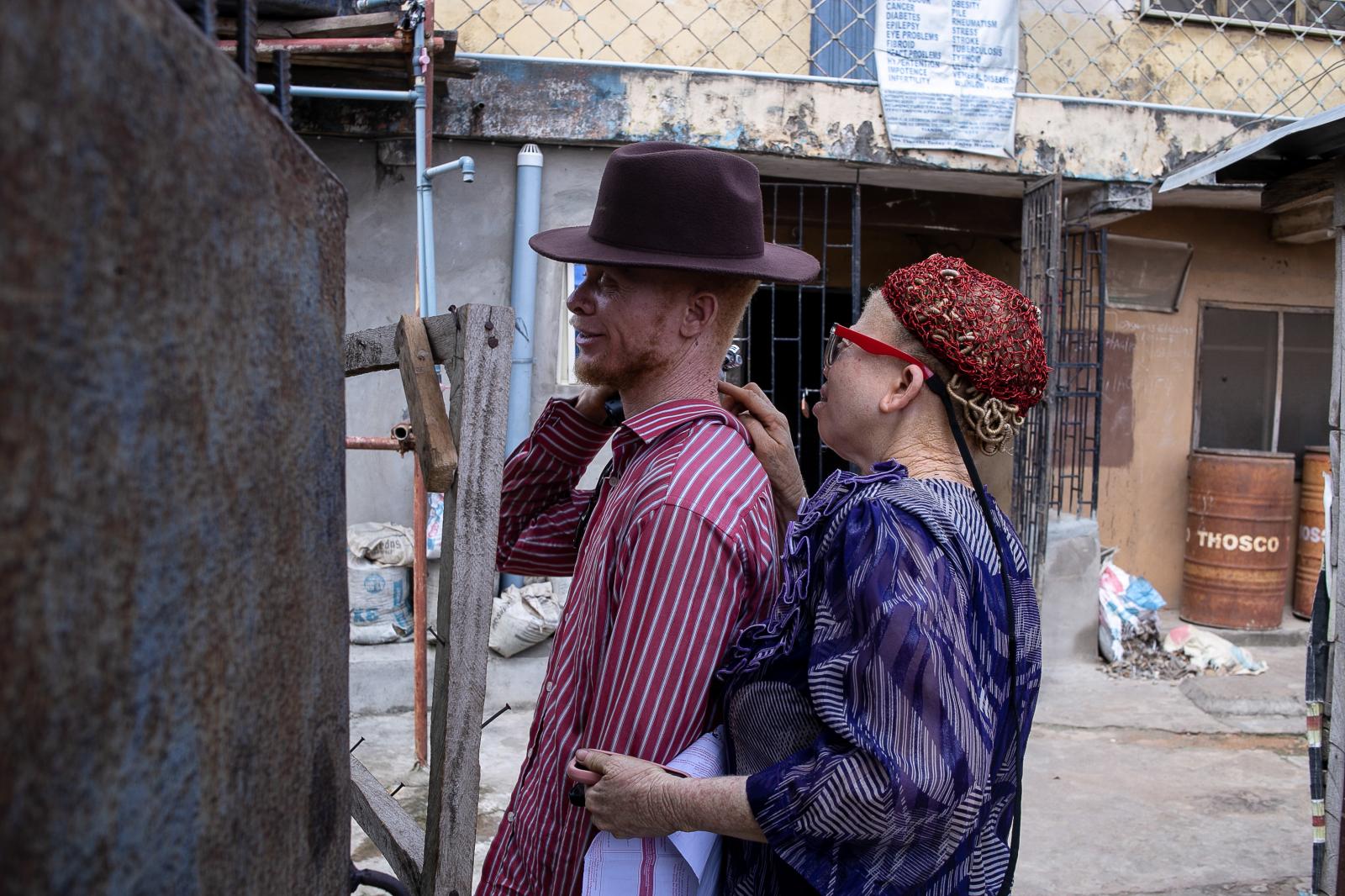Public Project
Sun,not Salt
visual project where he investigates how climate change affects the lives of people
living with albinism. There’s evidence that rising temperatures are increasing the risk of skin cancer – a particular danger to people with albinism. In Nigeria, the connection is not always well understood, and people often think the symptoms are caused by eating too much salt. (Opara, K. O. and Jiburum, B. C. (2010). Skin cancers in albinos in a teaching Hospital in eastern Nigeria – presentation and challenges of care. World Journal of Surgical Oncology, 8:73. Retrieved August 29, 2016)
With each passing day, climate change is becoming more than just a verbal
phenomenon and it has affected people across the world in various ways. In Nigeria, the heatwave has reached unbearable levels on several occasions and the rainy season cannot be juxtaposed with the dry season. The ripple effects of climate change have affected a sect of people greatly. Persons living with albinism are dying at an alarming rate due to the deteriorating weather conditions emanating from global climate change which makes them find life extremely difficult, as they cannot stand high temperatures. Skin cancers are a major risk associated with albinism and are thought to be a major cause of death in African albinos’ exposure to ultraviolet light appears to be the most important risk factor in the development of these cancers. Late presentation and failure to complete treatment due to financial difficulties and lack of health insurance made by the government are major challenges albinos in Nigeria face.
Facts and Figures
There are myths in Nigeria among different tribes like the Yorubas Hausas and many others attached to albinism, one of which is salt. It is believed that albinos should avoid food containing salt because it is believed to cause the proliferation of dark spots all over the albino skin. Symptoms caused by an extreme heatwave are mostly misinterpreted as symptoms gotten from eating salt While sticking with this misinformation, the affected albinos die. From Dr. Samuel Adesina Ademola (Department of Surgery, College of the Medicine University of Ibadan Nigeria) article titled AN ANALYSIS OF SKIN CANCER IN ALBINOS IN IBADAN. Gives an insight into the magnitude of dangers albinos are subjected to. About 1 in 20,000 people have the disorder. A study reported that 67% of primary skin cancer patients being treated at a hospital in Eastern Nigeria had the disorder (Opara, K. O., and Jiburum, B. C. (2010). Skin cancers in albinos in a teaching Hospital in eastern Nigeria – presentation and challenges of care. World Journal of Surgical Oncology, 8:73. Retrieved August 29, 2016)













